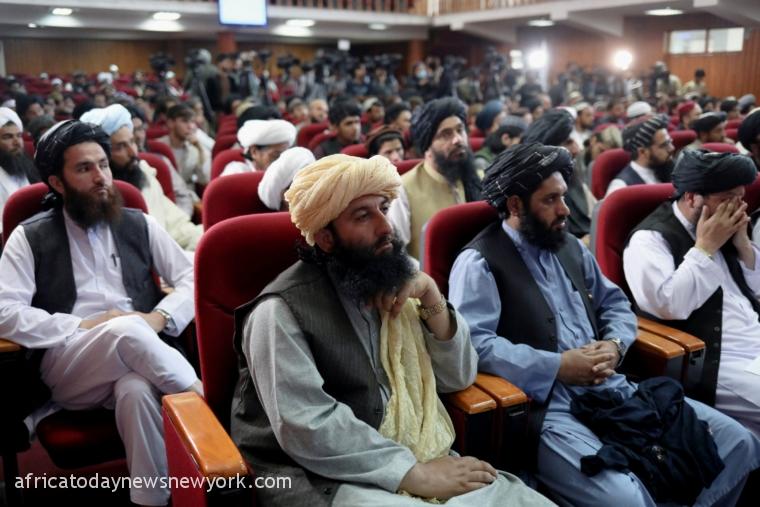The supreme leader of Afghanistan has ordered women in the country to cover their faces in public – one of the harshest restrictions imposed on them since the Taliban seized power last year which has fueled escalation of increasing restrictions on women that is drawing heavy criticisms from the international community and many Afghans.
In a decree issued by Taliban chief Haibatullah Akhunzada that was released by authorities at a function in Kabul on Saturday which was sighted by Africa Today News, New York, it partly said that; ‘They should wear a chadori (head-to-toe burqa) as it is traditional and respectful’.
A spokesman for the Ministry for the Propagation of Virtue and the Prevention of Vice read the decree from Akhunzada at a media conference, saying that a woman’s father or closest male relative would be visited and eventually imprisoned or fired from government jobs if she did not cover her face outside the home.
The spokesman went on to add that the ideal face covering is the burqa, which became a global symbol of the Taliban’s previous hardline rule from 1996 until 2001. Most women in Afghanistan wear a headscarf, but many in urban areas, such as Kabul, do not cover their faces.
Read Also: Taliban Moves To Create ‘Grand Army’ For Afghanistan
Speaking to reporters, Fawzia Koofi, who is a former Afghanistan parliament deputy speaker, stated that the Taliban’s decrees on women can only be regarded as ‘oppression and repression’.
‘The question is, in the middle of all this suffering for Afghan people, why is the issue of women the only one taking priority,’ queried Koofi, while referring to the deepening economic crisis across the country.
‘The biggest challenge women face every day is the lack of jobs and economic crisis,’ she said.
Africa Today News, New York recalls that since taking over Afghanistan, the Taliban have gone on to reintroduce draconian restrictions on freedoms and movements, particularly directed at women, that are reminiscent of their last rule in the 1990s.
Over the last few months, Taliban leaders, particularly from the Ministry of Propagation of Virtue and the Prevention of Vice, have announced many new restrictions, even as criticism and international pressure mounts against them.
In December, the ministry, which replaced the Afghan Ministry of Women Affairs, imposed restrictions on women from travelling further than 72km (45 miles) without a close male relative.
In January, a group of 36 UN human rights experts said that Taliban leaders in Afghanistan are institutionalising large-scale and systematic gender-based discrimination and violence against women and girls.
Africa Today News, New York

